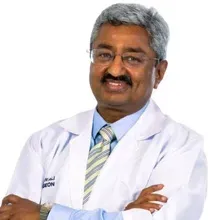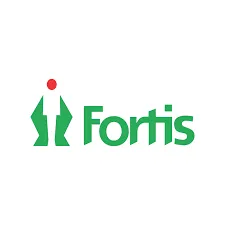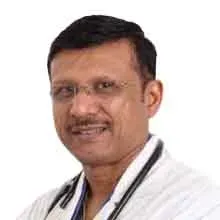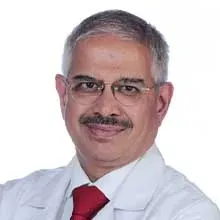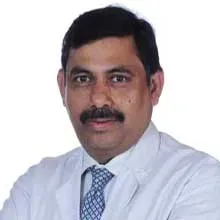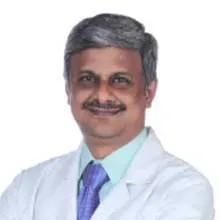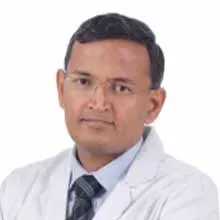About Doctor DR. VIVEK JAWALI
About
Dr. Vivek Jawali is a renowned cardiologist who has more than 40 years of expertise. Laparoscopic surgery, cardiac catheterization, carotid angioplasty and stenting, coronary angiography, heart
valve replacement, device closure, and a number of other operations are among his areas of expertise. He has completed more than 18,000 cardiothoracic and vascular procedures. In 1999, Dr. Jawali was the first surgeon in India to undertake awake heart surgery. He has received several honors, including the BC Roy Award for medical brilliance. In 1974, Dr. Vivek graduated with his MBBS from MR Medical College in Gulbarga, Karnataka. In 1980, he went on to complete an MS in general surgery at Jagadguru Jayadeva Murugarajendra Medical College. Additionally, in 1984, he earned a MCH from GS Medical College and KEM Hospital and, in 1981, a DNB from the National Board of Examination. He now has memberships in the Medical Council of India, IACTS, the Indian Medical Association, and the Indian Association of Cardiovascular and Thoracic Surgeons.
In 2008, Dr. Jawali served as the IACTS' (Indian Association of Cardiovascular and Thoracic Surgeons) president. He is also the sole Indian on the editorial board of Innovations in Cardiac Surgery, Cardiac Anaesthesia, and The magazine of the International Society of Minimally Invasive Cardiac Surgeons (ISMICS), of which he is a founding member. He has also served as the Indian College of Cardiology's vice president.
Work Experience
40 years of Experience
At Fortis Hospitals in Bangalore, Dr. Vivek Jawali is the Chief Cardiothoracic and Vascular Surgeon and Chairman of the Department of Cardiovascular Sciences. The major statutory authority that oversees the standards of medical education and the recognition of medical qualifications in the nation, the Medical Council of India (MCI), has also selected Dr. Jawali to serve on its council. He is on the academic council at the MCI. In India, he was a pioneer of minimally invasive heart surgery and has since completed more than 18,000 cardiothoracic and vascular surgeries. In 1992, he conducted India's first beating heart bypass surgery, and in September 1994, he conducted India's first minimally invasive bypass surgery (MIDCAB). In June 1999, Dr. Jawali performed the nation's first awake cardiac surgery (cardiac surgery without general anesthesia or a ventilator, performed under continuous high thoracic epidural). In April 2002, he also completed the first awake open heart surgery in the world, performing a triple bypass and replacing an aortic valve on a 74-year-old patient without the need of a ventilator or a G.A.
Associated with Hospitals
Fortis Hospital, Bangalore (Bannerghatta Road)
List of Treatments
-
Cardiac OPD Procedures: Cardiac OPD operations are those that are conducted on a regular schedule and do not require hospital admission. History taking, examination, blood tests, electrocardiogram, event evaluation, cardiac stress testing, electrophysiological studies, and other procedures are conducted in the cardiac OPD.
-
ECG-Treadmill Test TMT: A cardiac stress test, or treadmill test, is a cardiology test that assesses the heart's capacity to react to external stress in the context of clinical practice. This is the most basic and easy evaluation of the functional response of the heart to physical strain. It involves the regular monitoring of the patient's blood pressure and cardiac rates by using an exercise protocol, a treadmill, or a bicycle.
-
Coronary Revascularization Surgery: Coronary revascularization is a group of treatments or procedures that restore blood flow to areas of the heart that aren't getting enough blood to meet their needs. Rather than open-heart surgery, the surgeon attaches (grafts) a healthy vessel (often taken from the leg) to the diseased or narrowed heart vessel. After that, blood "bypasses" the sick spot and goes through the new channel.
-
Aortic Aneurysm Surgery: Depending on the location of the ruptured vessel, in this surgery, the surgeon first creates a big cut in the stomach or chest. The blood vessel is then eliminated, and the transplant is stitched in its place. This transplant is often a leak-proof polyester tube. The recovery time for open surgical repair is around one month.
-
Heart Transplant: A heart transplant is a procedure that replaces a failing heart with a healthy donor heart. Heart transplantation is often reserved for patients whose health has not improved sufficiently with medicines or other surgical procedures. While a heart transplant is a significant surgery, with proper follow-up treatment, your chances of survival are strong.
-
Ambulatory BP Monitoring (ABPM): The blood pressure may be continuously monitored for 24 hours with ambulatory blood pressure monitoring. The patient undergoes a process in which a blood pressure cuff is attached to him, wrapped around his arm, and connected to a little gadget worn on his body for 24 hours by a belt or strap.
Awards and Recognitions
-
1st in MBBS, Karnataka University
-
BC Roy Award for medical excellence
-
Established Open Heart Surgery programme at Sri Jayadeva Institute of Cardiology
-
Spearheaded growth of OPCAB in India
-
Performed India's 1st MIDCAB and 1st Minimally Invasive Replacement
-
Performed more than 15,000 CVTS operations
-
Responsible for establishing Wockhardt Heart Institute
-
Performed India's first awake bypass in May 2002
-
In 2004, He performed his first major Open Heart Surgery
Education and Training
-
MS, General Surgery, Jagadguru Jayadeva Murugarajendra Medical College (JJMMC), 1980
-
MCh, Cardiothoracic Surgery, G S Medical College, KEM Hospital Mumbai, 1984
-
MNAMS: General Surgery, National Board Of Examination, 1981
-
MBBS: Mahadevappa Rampure Medical College, Gulbarga, 1976
Trainings/Specializations
Membership
-
Indian Association of Cardiovascular And Thoracic Surgeons (IACTS)
-
Medical Council of India (MCI)
-
Vice President of the Indian Medical Association
-
Fellow of IACTS
Registrations
46226 Maharashtra Medical Council, 1976
Specialty Interests
 Associated with hospitals
Associated with hospitals
Envisioning the goals & paving the path to success for the organization.
Book Appoinment
Similar Doctors In Bengaluru
Envisioning the goals & paving the path to success for the organization.










